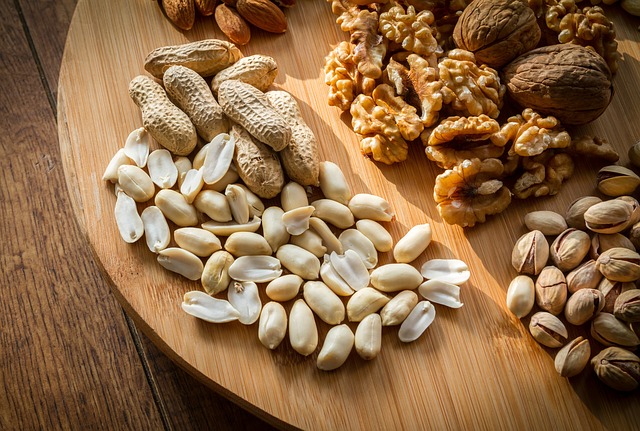Three years back, a study conducted on more than 8000 children in the US found that those with non-allergic mothers, who ate nuts more than five times a week during pregnancy, turned out to have the lowest risk of nut allergies. This research responded to the notion that pregnant women must avoid nuts during pregnancy to ensure that the child is not born allergic to nuts. In fact, the research revealed that nut allergies do not develop until a few years after birth.
Nuts are a good source of vitamins, minerals, and fats – and can be a great snacking option for pregnant women. Here are some of its benefits:
- Nuts with brown coats can ease constipation – a common problem during pregnancy – as they are rich in fibre. They also help maintain lower blood sugar levels and are advised for pregnant diabetic women. Walnuts, cashews, almonds and peanuts have phosphorus that keep the heart rate normal and prevent blood clots. Walnuts help develop healthy bones, brain and eye.
- A pregnant woman needs about 27mg of iron and copper a day. This can be met by consumption of nuts like raisins, walnuts, pine nuts, pistachios, and cashews. They aid the absorption of iron and help in brain development of the foetus.
- Folic acid, an important requirement for pregnant women, is recommended to reduce brain and spinal cord disorders in babies and to lower the risk of pre-term birth. Most nuts are rich in folic acid – which is a B vitamin that helps the body build and develop new cells. It is a critical part of pre-natal care when 400 mg of folic acid a day is recommended. Additionally, soaking nuts (especially almonds) helps boost up its folic acid content.
- In the case of high-risk pregnancies, like those of obese and diabetic women, research shows that their babies are likely to develop obesity or diabetes later in life. Nuts are highly recommended here as they reduce oxidative stress, inflammation, and blood sugar. They are also a great source of dietary carbs and fat.
- For pregnant women who are vegetarian, nuts are a great way to help meet the protein requirement which meat and fish might otherwise provide. About 70 gm of protein a day is recommended – and this adds up to about ½ cup serving of available nuts put together. They can either be combined with other foods or consumed as a quick snack.
- During the first trimester, when a pregnant woman must be most cautious, a cup of nuts along with fruits and an egg is highly recommended for daily consumption. Cashews are a great source of vitamin and can even serve as a supplement to vitamin pills during this period. Vitamins in nuts also help prevent anaemia, treating heart diseases, and high cholesterol.
A research conducted by Danish scientists about a year ago, observed that children of mothers who had peanuts at least once a week during their pregnancy were less likely to be diagnosed with asthma at 18 months of age. Many media reports carried the news that consuming nuts might lower the risk of the child developing nut allergies.
However, the findings do not prove a cause-effect relationship between women eating nuts during pregnancy and lowering allergy risk in their children. While pregnant women with nut allergies must consult their doctors regarding dietary restrictions, consumption of nuts otherwise is essential during pregnancy for both the child’s development and mother’s nutrient supplements.

